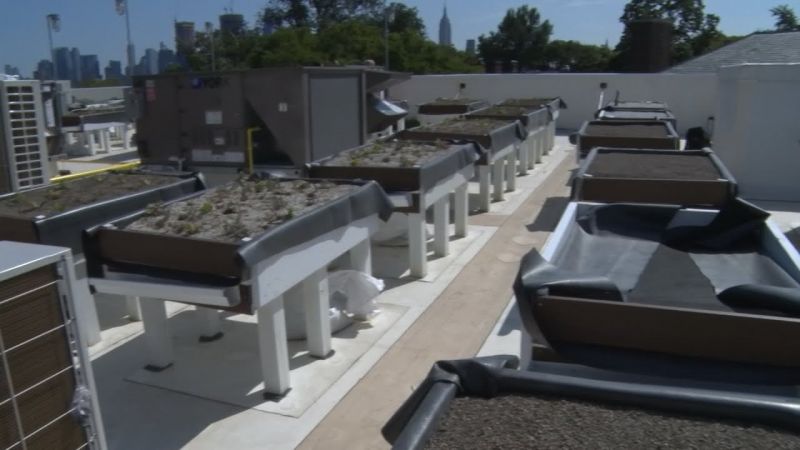'Living Lab' to Test Water Runoff Systems
Published on by Water Network Research, Official research team of The Water Network in Academic
Researchers at the Stevens Institute of Technology in Hoboken, NJ, have built a "living laboratory" to study hydrology.
The building hosts a rain garden, multiple bioretention planters and multiple green roof setups to test water quality performance in green infrastructure systems.

Image source: YouTube print screen
There are 20 green roof setups, duplicated to look at runoff from a rooftop with a different mix of lightweight growing media like soil, pumice, clay and compost. There are also four bioretention planters with a total of 15 sensors in each planter to measure how the rainwater drains. The researchers are developing another system to measure downspout flow in partnership with the Environmental Protection Agency, according to Stevens.
The lab is run by Elizabeth Fassman-Beck, a professor at Stevens Institute of Technology and one of the world's leading experts on green roofs — she's co-author of a book about living roofs in integrated urban water systems.
By focusing on bioretention, the lab at Stevens is working to improve water quality as well as reduce the quantity of water runoff. According to Fassman-Beck, bioretention planters capture water out of spouts similar to the way rain gardens do. But planters are mobile, making them a more useful solution in cities.
Read full article: Smart Cities Dive
Attached link
http://www.youtube.com/embed/6bxeEMELbQgMedia
Taxonomy
- Bioretention
- Stormwater Management
- Stormwater
- Urban Water
- Urban Resource Management
- Water Management
- Storm Water Management
- Integrated Water Resources Management (IWRM)